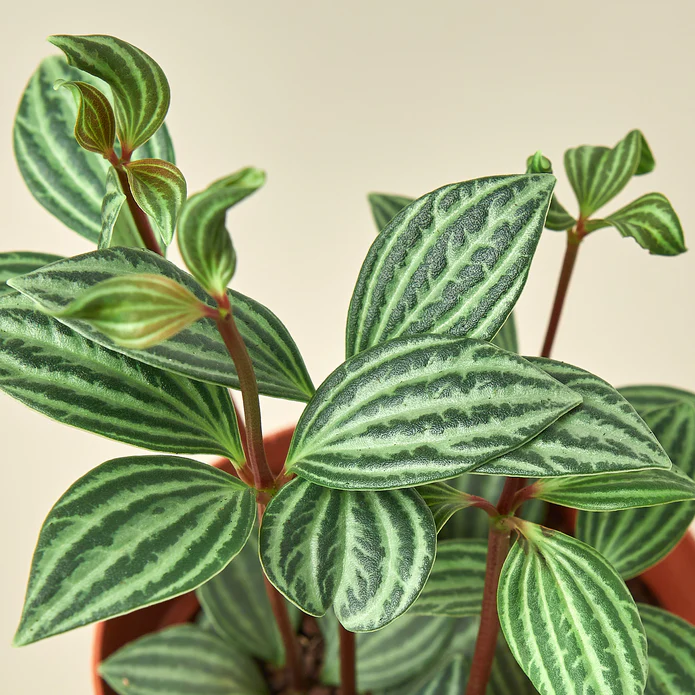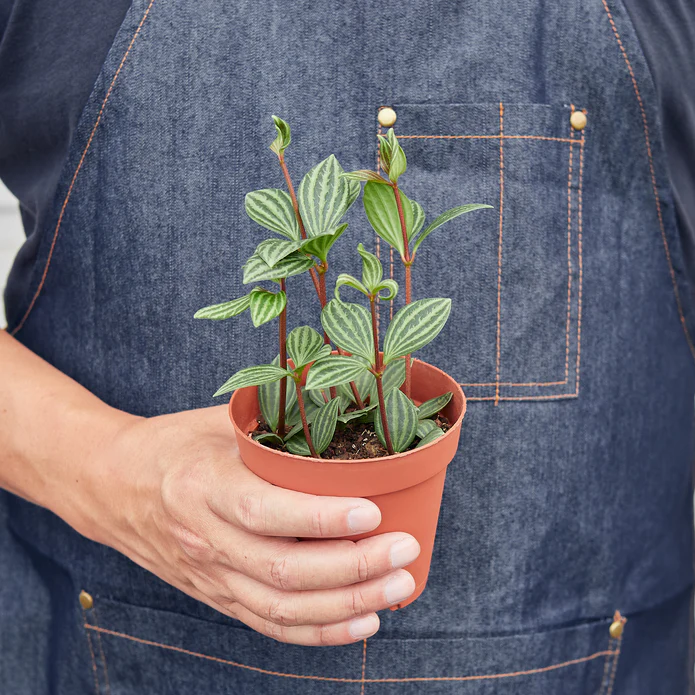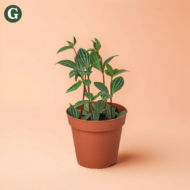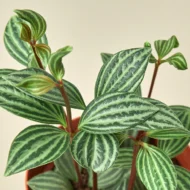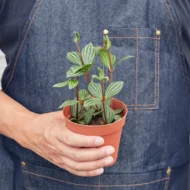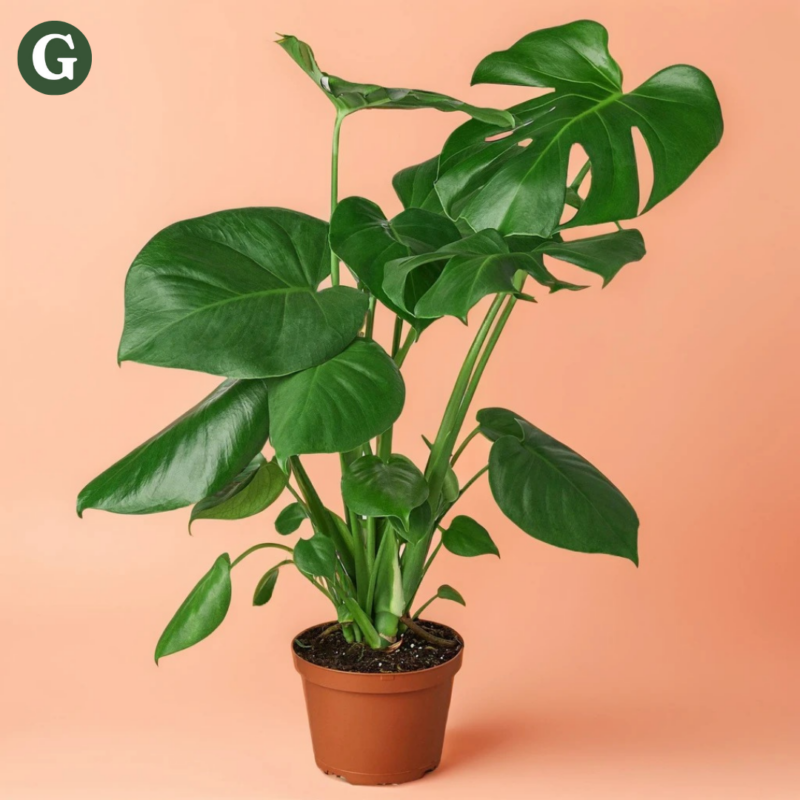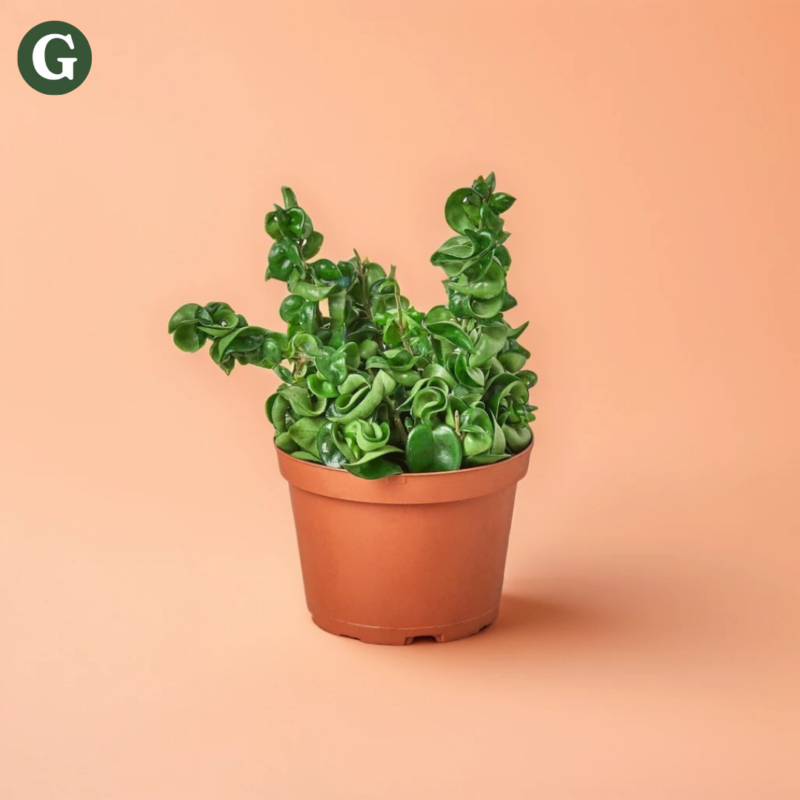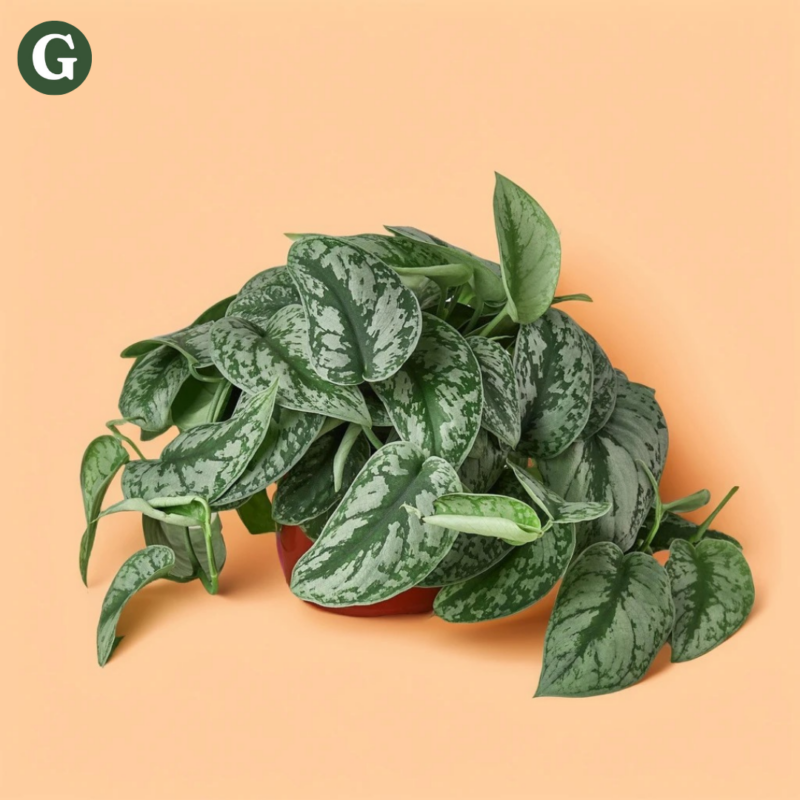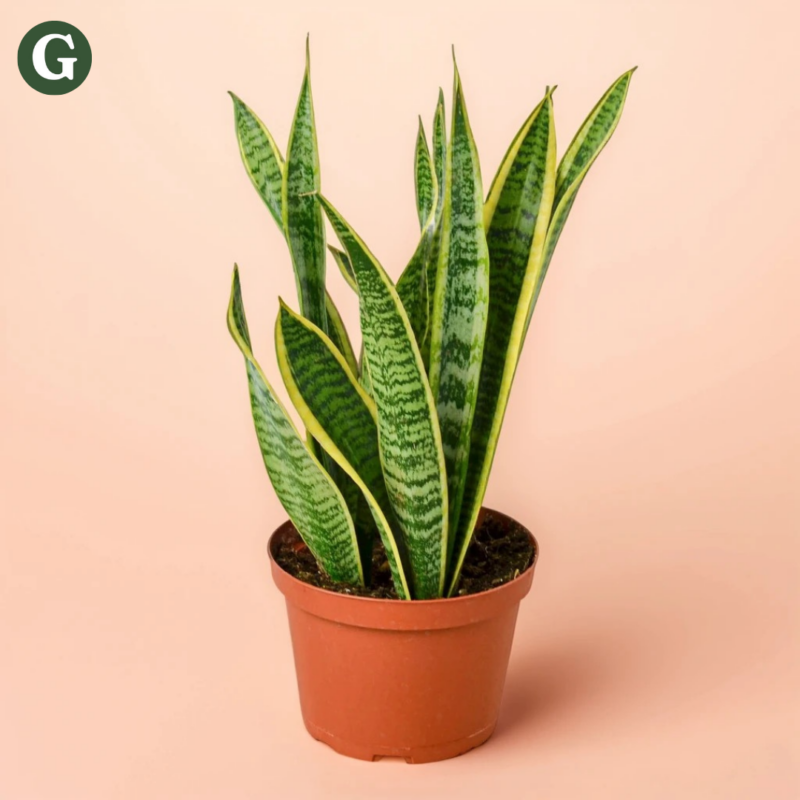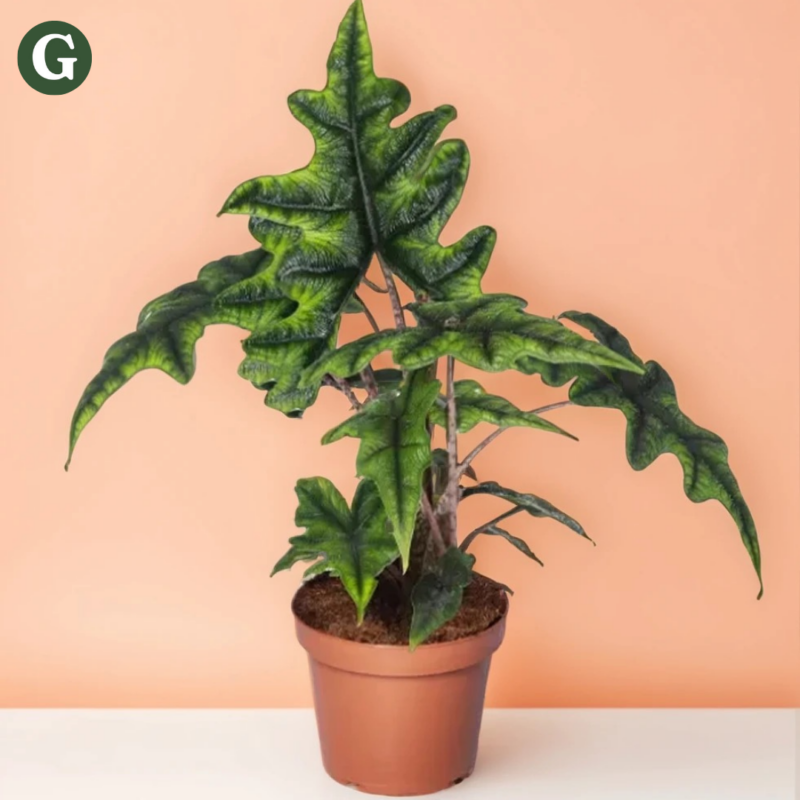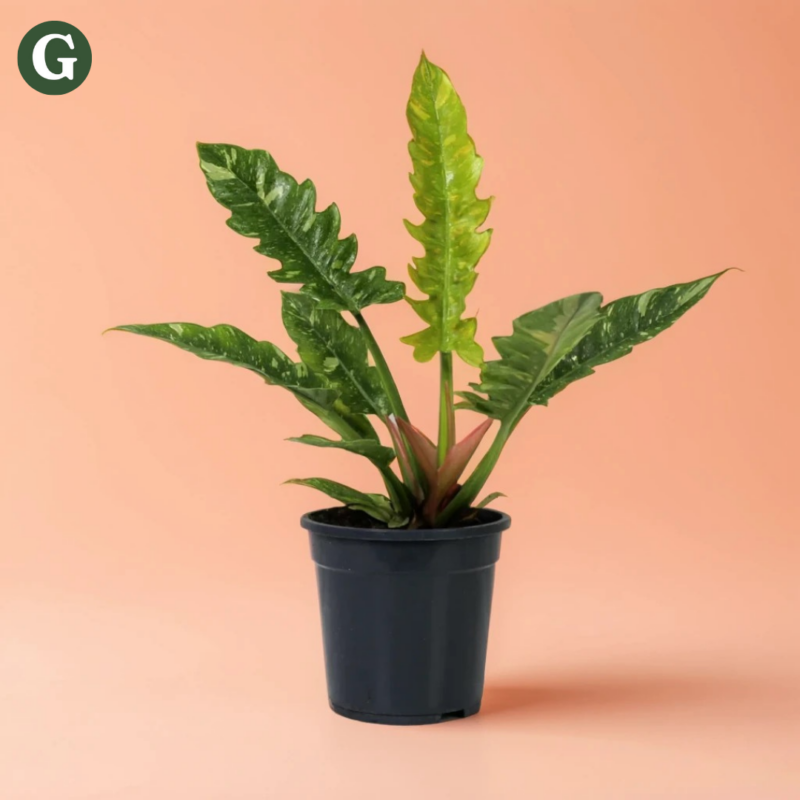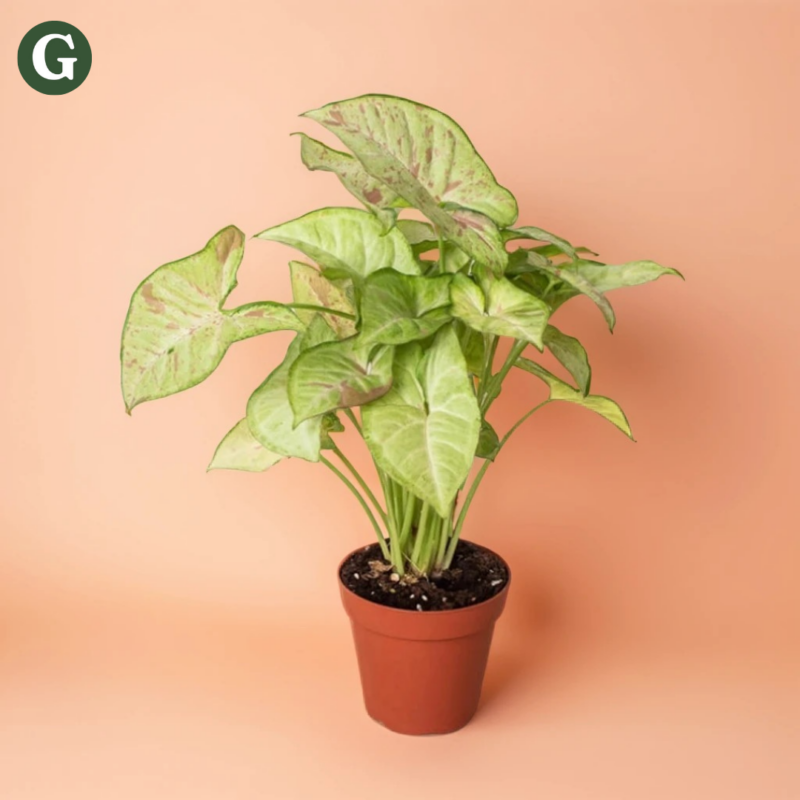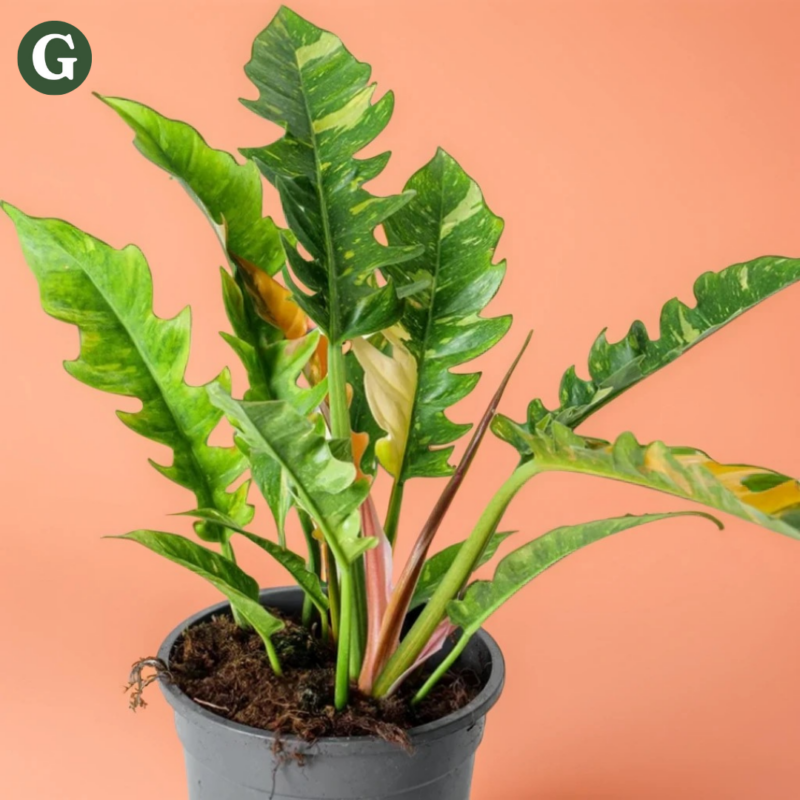Peperomia Parallel
Botanical Name: Peperomia 'Parallel'
Common Name(s): Parallel Peperomia
Peperomia Parallel is an elegant and unique variety known for its striking foliage. The plant has narrow, elongated, dark green leaves with parallel veins running through them, giving it a clean, graphic appearance. This compact plant is typically low-growing, reaching about 6-10 inches in height, making it ideal for small spaces, such as desks, windowsills, or shelves. Its simple yet bold leaf pattern makes it an eye-catching addition to any indoor garden.
Parallel Peperomia thrives in bright, indirect light but can also adapt to moderate light conditions. It prefers well-draining soil and should be watered when the top inch of soil feels dry, as it is susceptible to root rot if overwatered. This plant does well in average indoor humidity but can benefit from slightly higher humidity for optimal growth.
Air Purifying Qualities: Peperomia Parallel, like other Peperomias, contributes to improved indoor air quality by absorbing carbon dioxide and releasing oxygen, helping to freshen the air in your space. While not a major air purifier, it still offers some air-quality benefits.
Note: Peperomia Parallel is non-toxic to pets, making it a safe choice for households with cats and dogs. As with any plant, it's always best to monitor pets to ensure they don’t nibble on the leaves.
Care Insights & Expert Tips
- Fertilize sparingly: Feed your Peperomia Parallel with a diluted, balanced liquid fertilizer once or twice a year during the spring and summer. Too much fertilizer can burn the roots.
- Repot carefully: Repot your Peperomia Parallel only when it becomes root-bound. Use a well-draining potting mix.
- Avoid overwatering: Overwatering is the most common cause of death for peperomias. Allow the soil to dry out completely before watering again.
- Protect from cold drafts & pests: Peperomias are sensitive to cold drafts. Place them away from drafty windows and doors. Additionally, keep an eye out for common houseplant pests like mealybugs and spider mites. Treat infestations promptly with insecticidal soap or neem oil.

Visit our plant care library
Find essential tips to keep your plants thriving, vibrant, and healthy.

